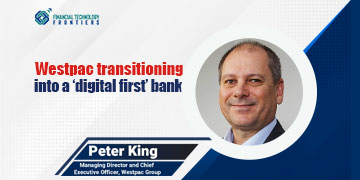Canadian financial services organizations have made good progress in understanding and adopting Diversity, Equity and Inclusion, or DEI, but there is much to be done, finds a new study:

Canada-based SaaS platform Divercial, which helps organizations to build inclusive workplace cultures, recently partnered with the Canadian Lenders Association (CLA) to study and understand the current state of Diversity, Equity and Inclusion (DEI) efforts within the Canadian financial services industry. Some of the findings in the survey are illustrative of the mindset of the entrepreneurs and how employees look at these issues. For example, the survey revealed that millennials currently represent the largest share of the working population – estimated to be at 37% globally and 33% in Canada. Likewise, for the first time in history there are 5 generations represented in the workplace in the country. It is also estimated that those born before 1965 (also called the Baby Boomer generation), constituted 20% of the workforce.
FINDINGS ARE POINTERS
The key findings of the study are:
Growth for people from under-represented groups: The financial sector has made significant progress when it comes to racial diversity, but there is still more work to be done. It is hoped that there will be growth in representation from people from different backgrounds, particularly in leadership positions.
Female Representation: Financial industry still requires more representation when it comes to women and those who identify as women. Whereas entry and lower-level positions see higher participation with women, the number starts to decrease the more senior the position.
Age Diversity: Millennials are currently the largest demographic in the workplace. The baby boomer generation was significantly underrepresented. Not only are general workforce population statistics (higher than 25%) for this generation, but it is also seemingly higher in the financial industry.
CURRENT STATE
The findings summed up that ultimately, there are 3 trends that are impacting the current state of DEI for members of the CLA. These are:
1. Talent Management
All employees, regardless of background, want the opportunity for fair career progression and opportunities. As a result, organizations need to move from traditional methods (resume applications) to skill-based hiring. This will allow candidates who may not have the access or resources for traditional requirements to still be eligible and given an equitable opportunity for showcasing their candidacy. Since the future of work involves the acceleration of soft skills advancement, it will be pivotal for companies to move towards skill-based hiring.
2. DEI Programming
DEI is a journey and will continue to remain at the forefront due to the future of work. When it comes to choosing employers, 76% of job seekers report a diverse workforce is an important factor when evaluating companies and job offers. To continue advancement in DEI, there is need for more data and insights to track and monitor progress. Without quantitative measurements, progress and advancement cannot be seen for equitable career advancement for those from unrepresented groups.
Canadian financial services organizations have made good progress in understanding and adopting Diversity,
High-performing organizations are 4.3x more likely to have a CEO who articulates a DEI vision and communicates results. Like everything, it starts at the top. Leadership involvement in shaping the future workplace cannot be understated. Visible action and commitment from senior leaders in the financial industry pertaining to DEI and stablishing equitable career advancement programs for those from underrepresented groups will help close the gap and create more inclusive cultures.
WHAT IS TO BE DONE
The study has recommended:
1. A Complete DEI Audit by every organization of their workplace to ensure the work environment is inclusive for all backgrounds. This exercise would include data collection, policy review, process evaluation, governance and leadership, talent management and workplace culture.
2. Communication as enterprises are well advised to regularly communicate their policies and programs around inclusive workplaces to their employees and other stakeholders. This includes sharing general information pertaining to DEI, data and insights, as well as events and commitments. It is also advisable that organizations implement an Inclusion Council for members of the senior leadership team to help govern and support inclusive endeavors on behalf of the organization.
3. Developing Equitable Career Paths since any bias in talent and hiring decisions can result in inequitable paths for career progression. Organizations should create a data-driven process that is objective and reduces systemic barriers and obstacles for those from underrepresented groups. For example, women in the workplace typically require additional workplace flexibility and mentorship options. The goal is for every employee to have equal and equitable access to support and resources so that they can achieve their full potential at their workplace, irrespective of their differences.




